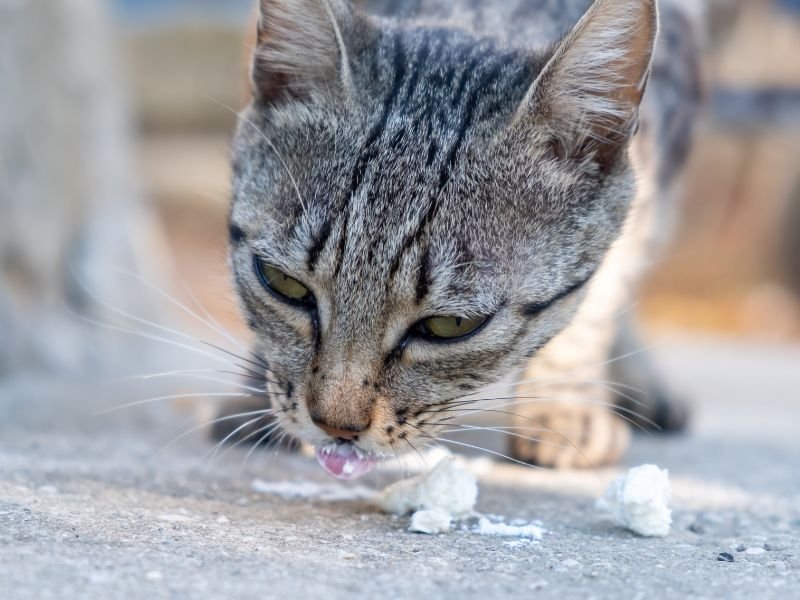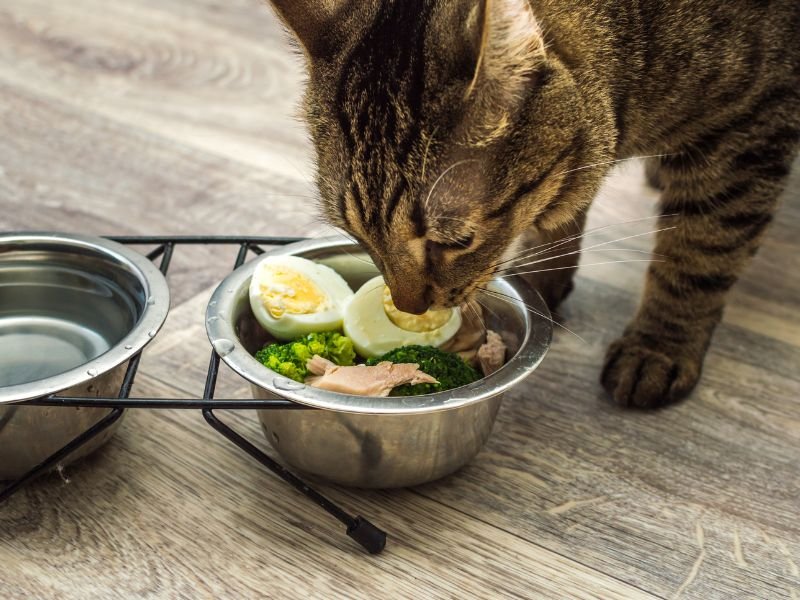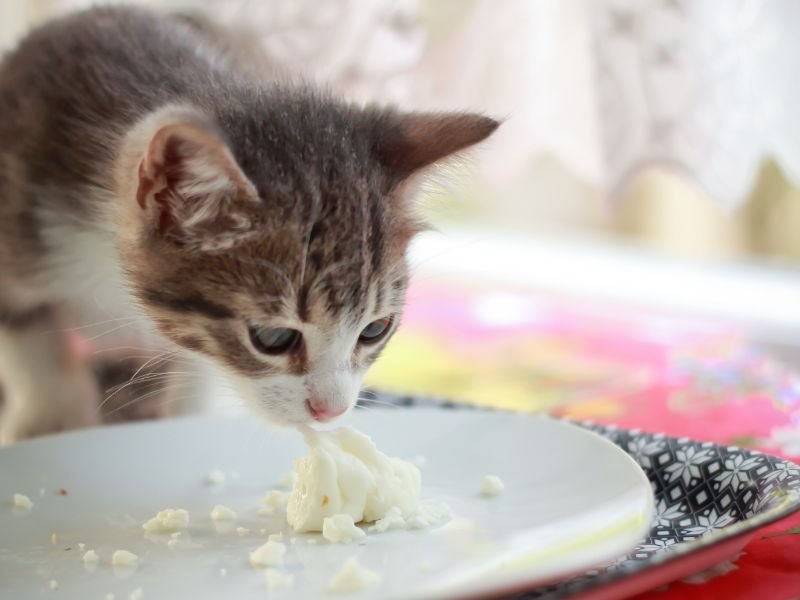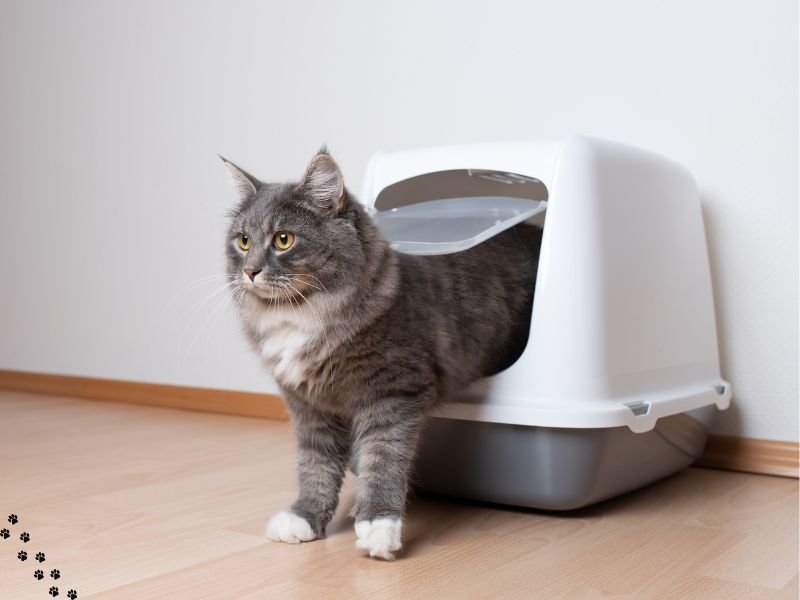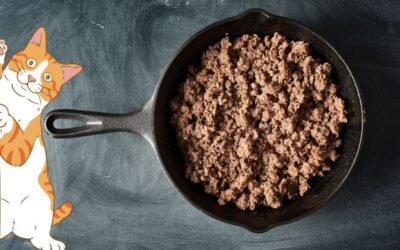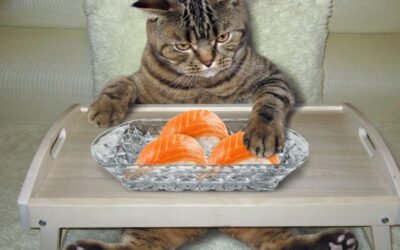When it comes to cats and their dietary preferences, many pet owners find themselves pondering the question: Can cats eat tofu?
As more people embrace plant-based diets and explore alternative protein options, it’s natural to wonder whether our feline companions can partake in the tofu feast.
While cats are obligate carnivores by nature, with their bodies perfectly adapted to a diet consisting primarily of meat, the idea of introducing tofu as a protein source may seem tempting.
In this article, we dive deep into the realm of feline nutrition to uncover the truth about cats and tofu.
Get ready to discover whether tofu can be a perfectly healthy addition to your kitty’s mealtime repertoire or if it’s better left for human consumption only.
Table of Contents
- Understanding a Cat’s Dietary Needs: Can Cats Safely Consume Tofu?
- Exploring the Nutritional Benefits of Tofu for Cats
- Potential Risks of Feeding Tofu to Cats: What Every Cat Owner Should Know
- Alternatives to Tofu for Feline Nutrition: Exploring Other Protein Sources
- Consult with a Veterinarian Before Feeding Tofu to Your Cat
- Homemade Tofu Treats for Cats: Simple Recipes to Ensure a Balanced Diet
- FAQs About Can Cats Eat Tofu
- Conclusion
Understanding a Cat’s Dietary Needs: Can Cats Safely Consume Tofu?
In order to provide the best care for our feline friends, it is essential to understand their dietary needs. Cats are obligate carnivores, meaning they require a diet that is mainly composed of animal-based proteins.
However, many pet owners who follow vegetarian or vegan lifestyles may wonder if tofu can be incorporated into their cat’s diet as a source of protein.
Firstly, it is important to know that cats have unique nutritional requirements that cannot be met by a solely plant-based diet. Their bodies are designed to efficiently digest and derive nutrients from animal proteins.
Amino acids such as taurine, arginine, and arachidonic acid, which are crucial for their overall health, are found abundantly in meat-based diets. While tofu does contain protein, it is sourced from soybeans and lacks these essential amino acids.
Feeding cats a diet primarily consisting of tofu can result in severe nutritional deficiencies and health issues. Taurine deficiency, for example, can lead to heart disease, impaired vision, and reproductive issues in cats.
While tofu is often touted as a healthy protein alternative for humans, it is not suitable as a primary protein source for cats.
It is also worth noting that a cat’s digestive system is not designed to handle large amounts of plant matter. They lack certain enzymes needed to break down and utilize plant-based nutrients efficiently.
Therefore, relying on tofu as a significant part of their diet can lead to digestive upset, including diarrhea, vomiting, or even malnutrition.
It is essential to prioritize their welfare and ensure they receive a diet that provides all the essential nutrients they need.
While tofu may occasionally be given as a small treat, it should never replace meat-based proteins in their diet. Instead, it is advisable to seek alternative sources of protein that meet their unique nutritional requirements.
Exploring the Nutritional Benefits of Tofu for Cats
When it comes to providing a healthy and balanced diet for our feline companions, understanding their nutritional requirements is crucial. As a cat owner, you may have wondered if tofu can be included in their diet.
Tofu, which is made from soybeans, has gained popularity among humans as a plant-based protein source.
However, it is important to delve deeper into the nutritional benefits of tofu for cats and assess whether it is a viable option for their dietary needs.
Protein Content
Tofu is a rich source of plant-based protein with approximately 8 grams of protein per 100 grams. Protein is a vital macronutrient for cats as it supports muscle development and repair.
While cats are obligate carnivores, meaning they require animal-based protein for their complete nutritional needs, incorporating a small amount of tofu as a supplementary protein source might be beneficial, especially for cats with specific dietary restrictions or as a way to add variety to their diet.
Essential Amino Acids
Tofu contains all the essential amino acids that are necessary for a cat’s health.
These amino acids are the building blocks of protein and contribute to various bodily functions.
However, it is important to note that cats have specific amino acid requirements, and while tofu can provide some of these, it should never replace animal-based protein sources entirely.
Phytochemicals and Antioxidants
Tofu also contains phytochemicals, such as isoflavones, which act as antioxidants. Antioxidants help to protect cells from damage caused by free radicals and support overall health.
While cats may benefit from some antioxidants found in plant-based foods, their needs are primarily met through animal-based ingredients in a balanced diet.
While tofu may offer certain nutritional benefits, it is important to remember that cats have unique dietary needs.
They require a diet rich in animal-based proteins, essential amino acids, and specific nutrients that can only be found in animal tissues.
Incorporating small amounts of tofu into your cat’s diet should not replace their primary source of animal-based protein.
Always consult with a veterinarian before making any significant changes to your cat’s diet, including introducing tofu as a supplementary protein option.
Potential Risks of Feeding Tofu to Cats: What Every Cat Owner Should Know
While tofu can be a viable option for cats, it is important for every cat owner to be aware of the potential risks that come with incorporating it into their feline friend’s diet.
Here are some key points to consider:
- Protein Deficiency: Tofu, being a plant-based protein, may not provide all the essential amino acids that cats need to thrive. Cats are obligate carnivores, and their bodies require certain nutrients that can only be derived from animal sources. Feeding too much tofu without adequate supplementation may lead to an imbalance in their diet, potentially resulting in nutritional deficiencies.
- Gastrointestinal Issues: Cats have a unique digestive system that is tailored for high-protein, low-carbohydrate diets. Introducing large amounts of tofu into their diet can disrupt their digestive balance and lead to gastrointestinal discomfort, such as bloating, gas, and diarrhea.
- Phosphorus Imbalance: Tofu is known to contain relatively high levels of phosphorus. If a cat already has kidney issues or is prone to developing them, feeding a diet high in phosphorus may put additional strain on their kidneys. It is crucial to consider any underlying health conditions and consult a veterinarian before introducing tofu as a regular component of their diet.
Alternatives to Tofu for Feline Nutrition: Exploring Other Protein Sources
In this section, we will explore alternative protein sources for cats, considering that tofu may not be suitable for every feline.
While tofu can provide some nutritional benefits, it is important to have a variety of protein options to ensure a balanced diet for your cat.
Meat-Based Proteins
Cats are obligate carnivores, meaning they require animal-based proteins for optimal health. Incorporating fresh, quality meats into their diet can provide essential amino acids, vitamins, and minerals.
Some excellent choices include lean poultry, such as chicken or turkey, as well as beef or lamb. It is crucial to offer cooked, boneless, and skinless meats that are safe for cats to consume.
Seafood
Adding seafood options to your cat’s diet can be beneficial, as many fish and shellfish are excellent sources of protein. Species like salmon, trout, and tuna offer omega-3 fatty acids, which promote healthy skin and a glossy coat.
However, it is important to feed seafood in moderation, as some varieties can contain high levels of mercury.
Cat-Friendly Vegetables
Certain vegetables can also provide protein, though in lesser amounts compared to animal-based sources. Options like cooked carrots, green peas, or spinach can be lightly steamed and added to your cat’s diet as a supplementary protein source.
However, it is vital to remember that cats have specific dietary requirements and should primarily rely on meat proteins for their nutritional needs.
It is important to note that any changes to your cat’s diet should be done gradually, especially when introducing new protein sources.
Observe your cat’s reaction and consult with a veterinarian if you notice any adverse effects.
Every cat is unique, and what works for one may not work for another, so finding the right protein alternative that suits your feline friend is paramount in ensuring their overall health and well-being.
Consult with a Veterinarian Before Feeding Tofu to Your Cat
It is essential for cat owners to seek professional advice and consult with a veterinarian before incorporating tofu into their feline’s diet.
Although tofu may seem like a viable alternative to animal-based proteins, it is important to remember that cats have unique dietary needs that must be met for their overall health and well-being.
Understanding individual cat’s needs
Each cat has specific dietary requirements based on their age, breed, weight, and any existing health conditions they may have. While tofu can provide some nutritional benefits, it is crucial to receive expert guidance to ensure it aligns with your cat’s specific needs.
Evaluating potential health risks
Your veterinarian can assess whether tofu is a suitable addition to your cat’s diet, taking into account any potential risks or side effects. Some cats may have allergies or sensitivities to soy products, which could lead to digestive issues or allergic reactions. A professional opinion will help you navigate through these concerns and make an informed decision.
Creating a balanced diet
Consulting with a veterinarian allows you to discuss the overall diet of your cat and assess whether tofu is the right choice to provide essential nutrients without compromising their health. A balanced diet is crucial for cats, and a professional can guide you on how to incorporate tofu alongside other necessary components such as high-quality animal proteins, vitamins, and minerals.
Remember, the expertise and guidance of a veterinarian ensure that you are making choices that prioritize your cat’s health and well-being. By seeking professional advice, cat owners can make informed decisions about their pet’s diet, taking into account their specific needs and any potential risks associated with feeding them tofu.
Homemade Tofu Treats for Cats: Simple Recipes to Ensure a Balanced Diet
In this section, we will explore some simple homemade tofu treat recipes that can help ensure a balanced diet for your feline companion.
These recipes are designed to provide variety in your cat’s diet while incorporating the nutritional benefits of tofu. It’s important to note that these treats should be given in moderation and as a supplement to a well-balanced cat food diet.
1. Tofu and Chicken Delight
Ingredients:
- 1/2 cup cooked chicken, shredded
- 1/4 cup firm tofu, mashed
- 2 tablespoons chicken broth (low sodium)
Instructions:
- In a bowl, combine the shredded chicken and mashed tofu.
- Gradually add the chicken broth, mixing well until the mixture reaches a dough-like consistency.
- Roll the mixture into small, bite-sized balls or shape them into tiny patties.
- Place the treats on a baking sheet lined with parchment paper and bake at 350°F (175°C) for about 10-12 minutes or until they are slightly golden.
- Allow the treats to cool completely before serving them to your cat as an occasional treat.
Note: As every cat is unique, it is essential to monitor your cat’s reaction to these treats. If you notice any allergies or digestive issues, discontinue the treats and consult with your veterinarian.
2. Tofu and Tuna Bites
Ingredients:
- 1/4 cup canned tuna in water, drained
- 1/4 cup firm tofu, mashed
- 1 tablespoon finely chopped fresh catnip (optional)
Instructions:
- In a bowl, mix the drained tuna and mashed tofu until well combined.
- Add the chopped catnip (if desired) and mix again.
- Using your hands, shape the mixture into small bite-sized balls or flatten them into tiny discs.
- Place the treats on a plate lined with wax paper and refrigerate for at least 30 minutes to allow them to firm up.
- Once chilled, the treats are ready to serve. However, if your cat prefers them slightly warmed, you can microwave them for a few seconds before offering them.
Pro tip: These treats can be stored in an airtight container in the refrigerator for up to a week.
It is crucial to remember that treats should not exceed 5-10% of your cat’s daily caloric intake. Always consult with your veterinarian before introducing any new treats into your cat’s diet, including homemade options.
FAQs About Can Cats Eat Tofu
Is tofu safe for cats to eat?
Yes, tofu is generally safe for cats to eat in small quantities. However, it should not be a primary source of nutrition for cats as they require a diet rich in animal protein.
How much tofu can cats eat?
Cats can be given a small amount of tofu as an occasional treat. It should not exceed 10% of their daily caloric intake.
Can cats digest tofu easily?
Cats have difficulty digesting plant-based proteins like tofu, as their digestive system is adapted to process animal-based proteins more efficiently.
Are there any risks or side effects of cats eating tofu?
Feeding cats excessive amounts of tofu could lead to nutritional imbalances and deficiencies. Additionally, some cats may experience digestive upset or bloating if they consume large quantities of tofu.
Are there any health benefits for cats eating tofu?
While tofu contains some nutrients, such as protein and calcium, that can be beneficial for cats, these nutrients are better obtained from animal sources in a feline diet.
Conclusion
Feeding cats tofu in moderation as an occasional treat is generally safe, but it should not be a significant part of their diet.
Cats primarily need animal-based proteins to meet their nutritional requirements, and a well-balanced, species-appropriate diet is essential for their overall health and well-being.

